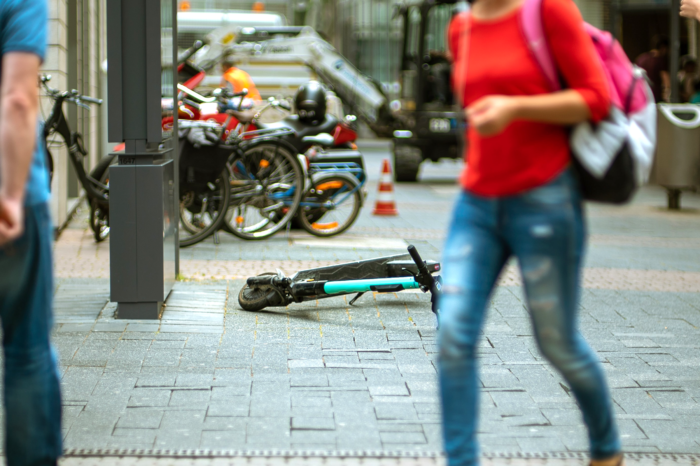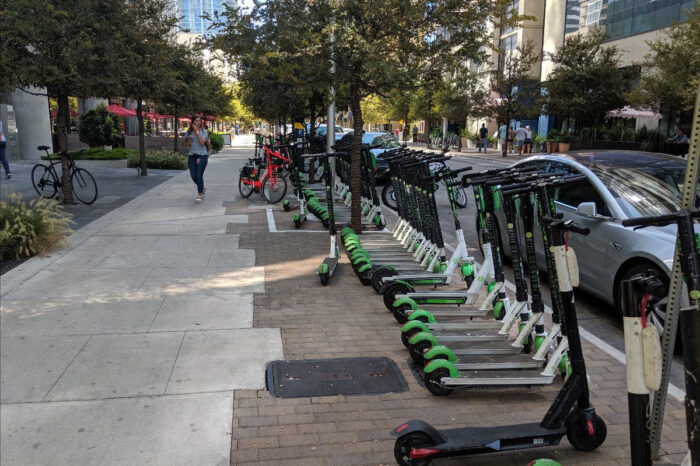Since their arrival, shared e-scooters have given rise to some bizarre, even apocalyptic predictions about their short and long-term impacts.
Thankfully, however, the truth is in the data, and the newest numbers that are emerging one year after the onset of a global pandemic that dramatically changed urban transportation are debunking some of the most prominent micromobility myths that have persisted since 2017.
Here are three key examples of how such data is providing important new insights on the short and long-term impacts of shared micro-EVs.
3 Million New Riders Try E-Scooters
Last summer, the National Association of City Transportation Officials (NACTO) reported that the number of e-scooter trips in the US had jumped from 38 million in 2018 to 86 million in 2019. This was a good early indicator that micromobility is here to stay, and more recent evidence has only corroborated these findings.
Since March 2020, well over 3,000,000 new first time riders have tried Bird despite a global pandemic that has seen travel severely restricted and entire cities in quarantine for months at a time. Europe in particular has experienced significant growth in micromobility ridership over the past year. In France alone, there were 12.8 million e-scooter rides taken in 2020 even though the country was on lockdown for a full quarter of the year.
E-Scooters Are Good for Public Transit
COVID has taught us that the relationship between public transit and e-scooters, once feared to be parasitic, is instead symbiotic. Contrary to some initial estimations, micro-EVs act as a supplement to buses and trains in a variety of ways—connecting riders to stations, integrating with multimodal transit networks, and helping keep ridership manageable during peak hours when the risk of virus transmission is highest.
The dramatic rise in partnerships between e-scooter and public transit operators, particularly in Europe, is a clear indicator of this symbiotic relationship. A micromobility partnership with SNCF, France’s national state-owned railway company, to increase multimodal transportation access in French cities is a recent example of a growing trend of transit/micromobility partnerships that has taken off since COVID.
The Vast Majority of E-Scooter Riders Are Local
The myth that scooter riders were predominantly tourists was technically debunked well before COVID, when multiple micromobility surveys conducted around the world indicated that the majority of e-scooter riders were locals. In our experience, visitors typically accounted for between 10%-30% of pre-pandemic ridership depending on the city.
Post-pandemic, however, that ratio has changed dramatically. In a survey we conducted, since March 2020, more than 99 in 100 riders identify as local to the city in which they’re riding. As we’ve seen from the numbers of new first-time riders above, this shift can’t simply be attributed to a slowdown in travel. Instead, important initiatives like operators offering free rides for healthcare workers and cities implementing new car-free stress have helped encourage an increasing number of locals to switch to e-scooters.
Ride length is a final indicator as to the uptake and impact of shared micro-EVs. Increased ride durations that were seen back in May of 2020 have continued into 2021, with Bird rides today 40% longer than pre-COVID. The proof is in the data that pre-pandemic myths were just that, and long-term habits are shifting towards micromobility as a mainstay for new riders, local riders and cities.
By Rebecca Hahn, Chief Corporate Social Responsibility Officer at Bird
 Rebecca Hahn is the Chief Corporate Social Responsibility Officer at Bird. Her role puts her at the confluence of community engagement and storytelling, leading the company’s global city engagement, government partnerships, policy, communications, marketing and brand teams.
Rebecca Hahn is the Chief Corporate Social Responsibility Officer at Bird. Her role puts her at the confluence of community engagement and storytelling, leading the company’s global city engagement, government partnerships, policy, communications, marketing and brand teams.
As a mother of two, Rebecca is dedicated to Bird’s mission of creating healthier, more livable cities for future generations. On any given day, you can find her and her team working alongside global city partners to help increase funding for improved infrastructure or close transit gaps for those most in need. Rebecca strives to get people out of cars and riding Birds in order to reduce traffic and lower carbon emissions in communities around the world.
A public relations veteran, Rebecca was most recently a partner at The OutCast Agency. Previously, Rebecca was Director of Oracle’s Corporate Communications team, where she managed global communications campaigns.






